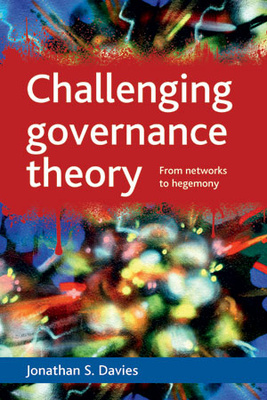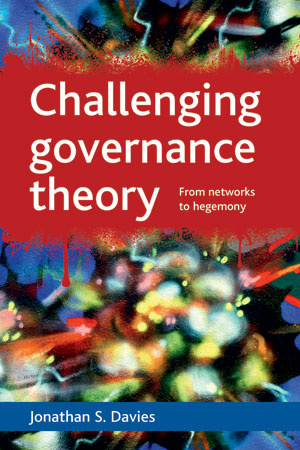Published
Sep 28, 2011Page count
200 pagesISBN
978-1847426147Dimensions
234 x 156 mmImprint
Policy PressPublished
Sep 28, 2011Page count
200 pagesISBN
978-1847426154Dimensions
234 x 156 mmImprint
Policy PressPublished
Sep 28, 2011Page count
200 pagesISBN
978-1447306085Imprint
Policy PressPublished
Sep 28, 2011Page count
200 pagesISBN
978-1447306092Imprint
Policy PressTheories heralding the rise of network governance have dominated for a generation. Yet, empirical research suggests that claims for the transformative potential of networks are exaggerated. This topical and timely book takes a critical look at contemporary governance theory, elaborating a Gramscian alternative. It argues that, although the ideology of networks has been a vital element in the neoliberal hegemonic project, there are major structural impediments to accomplishing it. While networking remains important, the hierarchical and coercive state is vital for the maintenance of social order and integral to the institutions of contemporary governance. Reconsidering it from Marxist and Gramscian perspectives, the book argues that the hegemonic ideology of networks is utopian and rejects the claim that there has been a transformation from 'government' to 'governance'. This important book has international appeal and will be essential reading for scholars and students of governance, public policy, human geography, public management, social policy and sociology.
"Davies lays out a powerful critique of current calls to order in social policy and public services." Alex Law, University of Abertay, Dundee
"The book represents the culmination of many years of scholarship, and it is an excellent read. It is definitely one of the best syntheses of network governance currently in the market." Dialogues in Human Geography
"While a short volume..it nevertheless leaves a few cues to researchers to develop a more democratic and equitable architecture of government-sourced governing in which networks will be a necessary but never sufficient condition." Dipankar Sinha Political Studies Review
"A robust challenge to the casual acceptance of network governance as the 'way we live now', this book offers a stimulating and provocative critique of governance that is theoretically rich and analytically satisfying. Essential. " Helen Sullivan, University of Birmingham
"The conventional wisdom about 'governance' is subject to an incisive critique, reinforcing Davies reputation for pushing forward new thinking about the relationship between state and civil society." Chris Skelcher, University of Birmingham
Jonathan S. Davies is Professor of Critical Policy Studies at De Montfort University, having formerly worked at the University of Warwick. He studied for his DPhil at the University of York and has since published widely in urban politics, governance and public policy.
Contents: Introduction; The rise of governance theory; Governance policy and institutions; Critical responses to governance theory; Governance theory: three postmodernist elisions; Beyond critique: governance as hegemony; Governance beyond the differentiated polity; Conclusion.



















